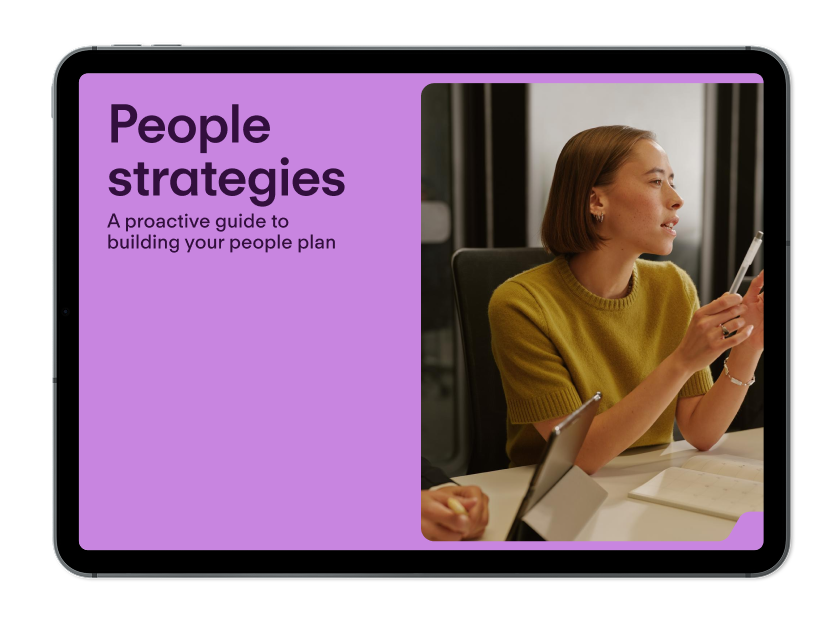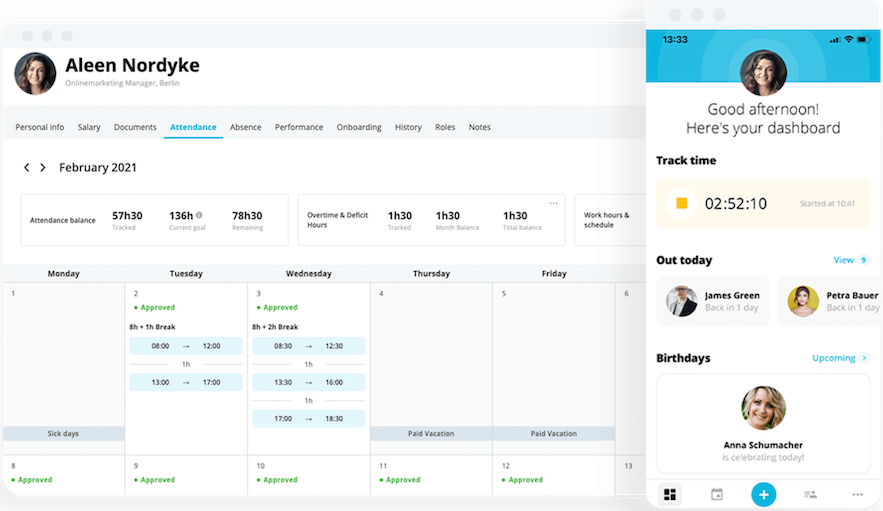
People Strategy Guidebook
A free guide to help power your next great people strategy.
Download our guide to developing your organization’s own people strategy today.What is the role of a Chief People Officer (CPO)?
A decade ago, most businesses had no idea what a chief people officer was, much less did they feel the need to have one. But, especially in recent years, the role and status of human resources has changed dramatically. Now, your team needs a CPO at the helm.
Why, though? What has made for the relatively sudden shift? Part of it has to do with evolving technologies, economic landscapes and the changing needs of employees. In this article, we introduce and detail the evolving role of today’s top people executives.
Build your very own HR business plan with the help of our template. Download it now.
Contents
- 1What is a chief people officer?
- 2What does a chief people officer do?
- 3What is the difference between a CHRO and a CPO?
- 4What is the role of a chief people officer in the UK?
- 5What organisational challenges can a CPO help address?
- 6What is the relationship between the CEO and the CPO?
- 7What do CPOs need for success?
What is a chief people officer?
A chief people officer (CPO) is an executive-level position responsible for overseeing an organisation’s human resources and talent functions. In overseeing every aspect of HR work, a CPO is in charge of hiring, onboarding, managing, developing and retaining employees.
What does a chief people officer do?
The need for a CPO has grown as organisation’s increasingly face challenges that require flexibility and effective communication with their workforce. The CPO role can vary based on each organisation’s challenges, but it often covers the following responsibilities:
Developing strategies to attract and hire top talent, and ensuring the business has the right people in the right positions. | |
Enhance skills in the existing workforce and ensure programmes foster career growth and identify talent for promotion opportunities. | |
Enhance skills in the existing workforce and ensure programmes foster career growth and identify talent for promotion opportunities. | |
Ensure programmes exist to foster communication with employees and resolve conflicts. | |
Compensation and benefits. | Create and manage compensation and benefits schemes that ensure the organisation is competitive in the talent market. |
Develops and implements programmes to foster an inclusive and equitable workplace. Measures existing programmes for effectiveness and employee trust. | |
Shapes the organisation’s culture to align with its values, mission and goals. Often oversees or influences community and social programmes designed to improve the organisation’s public image on social and environmental issues. | |
Ensures the organisation complies with employment laws and recommends training and education initiatives to ensure compliance from employees and line managers. |
What is the difference between a CHRO and a CPO?
A chief human resource officer (CHRO) is an older title that focused heavily on guiding HR policy and process decisions. The chief people officer (CPO) is a newer term that has grown from organisations recognising the need for a bridge between the workforce and executive decision-making.
The move toward CPOs has been driven by talent shortage fears. A recent report from Korn Ferry found that by 2030, a shortage of skilled talent could impact more than 85 million jobs. Organisations are turning to CPOs to find ways to ensure their business will continue to have the talent they need. CPOs help identify and retain top talent by fostering better workplace experiences for employees and strengthening programs that reward the best performers.
A CPO is sometimes seen as an elevated version of CHRO because of the high value organisations now place on talent acquisition and retention. Organisations with a CPO are more likely to view this position as a highly relevant executive, rather than a reporting function from a service department.
What is the role of a chief people officer in the UK?
Chief people officers in the UK manage many of the same challenges faced elsewhere in the world, but also must face some unique obstacles. It is vital that CPOs recognise the unique talent challenges organisations face in the UK and not attempt to apply a one-size-fits-all approach across multiple regions.
Covid-19 continues to impact organisations across the UK. CPOs must grapple with rapidly changing workforce expectations around remote and hybrid work. As the voice between employees and the executive team, CPOs are uniquely able to suggest strategies that build productivity without alienating valuable talent.
In the UK, Brexit and shifting immigration policies are also top of mind for CPOs. Employers need to stay on top of their staffing needs across the organisation and ensure they have workable strategies in place to avoid shortages. CPOs are uniquely placed to track staffing changes and develop talent strategies.
Industrial relations has also returned to the UK employment landscape to a degree not seen in many years. This has made knowledge of labour relations strategies vital for CPOs in several industries.
Finally, CPOs in the UK are helping organisations grapple with a lack of necessary skills and experience in entry-level employees. University students in the UK missed out on valuable apprenticeship and early career training opportunities during Covid-19 lockdowns. As a result, 45% of students and graduates in a Prospects survey indicated they felt unprepared for getting a job.
The gap in work experience and general preparedness for the workplace has shifted more training and development responsibility to UK employers. CPOs are taking up this challenge to reconsider experience requirements for recruiting some roles and developing robust onboarding and training strategies to bridge the gap.
What organisational challenges can a CPO help address?
CPOs are increasingly at the forefront of managing organisational challenges. Businesses that empower the CPO role can benefit from strategic insights on how their workforce embraces change and how the organisation can be positioned to thrive.
As many organisations seek to return employees to the office or turn to hybrid working models, CPOs are best placed to measure and report on the impact of these shifts. A talented CPO will use these measures to develop flexible HR strategies that cater to the diverse needs and preferences of the organisation’s workforce.
Employee work locations are in flux, but so is how employees are working. Emerging technologies like artificial intelligence (AI) are rapidly entering the workplace across departments. CPOs can lead initiatives to upskill employees and ensure a smooth and reliable integration of AI, while addressing concerns about original work and job displacement.
CPOs can also champion issues that are valuable to employees and the broader community. CPOs often lead environmental, social and governance (ESG) programmes that impact the organisation’s reputation for corporate responsibility. Building a strong reputation for corporate responsibility makes it easier for organisations to attract talent as well as customers.
What is the relationship between the CEO and the CPO?
Chief people officers are trusted advisors who often have a close relationship with the CEO. Ever since Covid-19 upended the workplace, HR has been constantly on call to navigate shifting business needs and employee expectations. During this time, CPOs have stepped into an increasingly trusted strategic position of value.
The valued relationship between CPOs and CEOs has resulted in more CPOs being considered for succession to a CEO position than ever before. In order for CPOs to continue providing value, it is vital that they communicate clearly to CEOs and retain trust.
What do CPOs need for success?
As with other C-suite positions, a CPO needs a broad skill set. Typically achieved after 10+ years experience in HR or business management roles, a quality CPO brings HR expertise, business knowledge and soft skills like emotional intelligence and problem-solving.
CPOs rely on business insights and analytics to guide their recommendations. Even the most talented CPO will fall short if they must react blindly without the benefit of quality reporting. Personio’s HR analytics take out the guesswork and empower your CPO to make data-driven decisions and recommend strategies that align with what is actually happening in your business.
On a practical level, a CPO needs to be empowered with streamlined HR practices that ensure their HR team won’t waste time responding to basic enquiries. With Personio’s automated HR delivery system, HR teams have the bandwidth to work on strategic initiatives instead of repetitive tasks.
Contact Personio today for a personalised demo. Empower your CPO with robust reporting and build an HR team ready to support effective people strategies.
